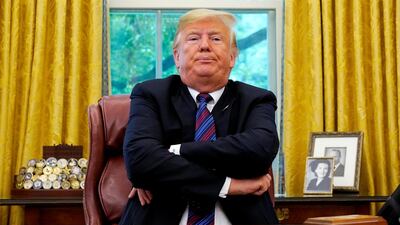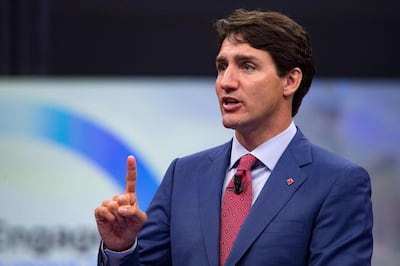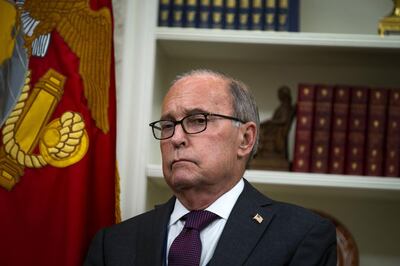The United States and Mexico agreed on Monday to overhaul the North American Free Trade Agreement (Nafta), putting pressure on Canada to agree to new terms on car trade and dispute settlement rules to remain part of the three-nation pact.
Auto stocks soared and the S&P 500 and the Nasdaq rallied to record highs on the expectation that Canada would sign on to the deal and ease the economic uncertainty caused by US President Donald Trump's repeated threats to ditch the 1994 agreement.
Details of gains and concessions in the deal are only now starting to emerge. Mr Trump threatened he still could put tariffs on Canadian-made cars if Canada did not join its neighbours and warned he expected concessions on Canada's dairy protections.
"I think with Canada, frankly, the easiest we can do is to tariff their cars coming in. It's a tremendous amount of money and it's a very simple negotiation. It could end in one day and we take in a lot of money the following day," Mr Trump said.
He and Canadian Prime Minister Justin Trudeau discussed trade in a telephone call on Monday and "agreed to continue productive conversations", White House spokeswoman Sarah Sanders said.
Negotiations among the three partners, whose mutual trade totals more than $1 trillion annually, have dragged on for more than a year, putting pressure on the Mexican peso and the Canadian dollar. Both currencies gained against the US dollar after Monday's announcement.
Mr Trump's economic adviser, said the deal with Mexico should serve as a "reset" for talks with Canada.
If talks with Canada are not wrapped up by the end of this week, Mr Trump plans to notify Congress that he has reached a deal with Mexico, but would be open to Canada joining, US Trade Representative Robert Lighthizer said.
The White House said Mr Trump will sign the deal in 90 days. Congress has to approve it. Mexican President Enrique Pena Nieto wants to sign the agreement before leaving office at the end of November.
The Mexico-US discussions focused on crafting new rules for the automotive industry, which Mr Trump has put at the heart of his drive to rework a pact he has repeatedly described as a "disaster" for American workers.Matt Blunt, president of the American Automotive Policy Council, which represents General Motors, Ford and Fiat Chrysler, said the group was optimistic about the new deal, though it was still reviewing the details.
The deal would require 75 per cent of automotive-related production to be made in the Nafta region, up from the current level of 62.5 per cent, a US trade official said.
_______________
Read more:
US stocks hit record highs as Nafta replacement deal unveiled
Toyota warns car costs could rise amid threat of US tariffs
_______________
A fact sheet describing the bilateral agreement specified the content would be made in the US and Mexico.
That requirement could shift some car parts manufacturing to Mexico from China, a White House official said, speaking on condition of anonymity.
The Trump administration said the deal improves labour provisions, in part by requiring 40 per cent to 45 per cent of car content to be made by workers earning at least $16 per hour.
That measure could move some production back to the US from Mexico and should lift Mexican wages, the White House official said.
The US relented on its demand for an automatic expiration for the deal, known as a "sunset clause".
Instead, the US and Mexico agreed to a 16-year lifespan for the deal, with a review every six years that can extend the pact for 16 years, Mr Lighthizer said.
Mexico agreed to eliminate dispute settlement panels for certain anti-dumping cases, a move that could complicate talks with Canada, which had insisted on the panels.
Monday's announcement lifted equity markets in all three countries, with shares in automotive companies standing out on relief that the deal appeared to end the uncertainty that has dogged the sector for months.
General Motors, Ford and Fiat Chrysler gained between 3.3 per cent and 4.8 per cent, while Canadian car parts maker Magna International gained 4.6 per cent.





